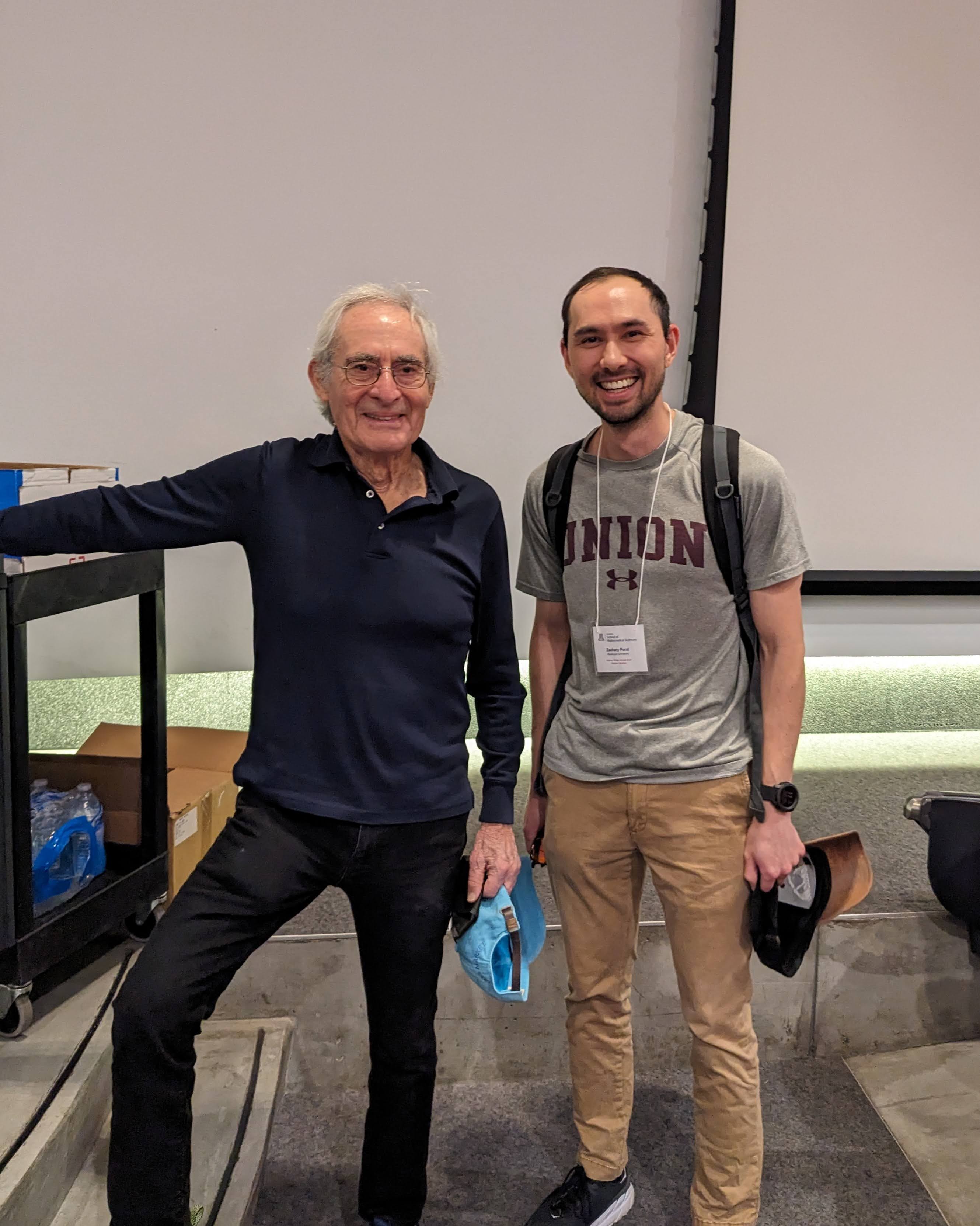Zachary Porat
Mazur and Me
Posted on July 20, 2024
In 1977, Barry Mazur proved Ogg’s conjecture, showing that the torsion subgroup of the Mordell-Weil group of an elliptic curve over Q must be isomorphic to one of fifteen groups.1 I can’t quite remember when I first saw this statement–it might have been in a plenary talk by Álvaro Lozano-Robledo at the 2019 Union College Mathematics Conference–but I do remember being struck by just how tidy the statement was. The classification result scratched some itch in my brain that I didn’t even know I had. It would serve as major inspiration for my undergrad thesis, and propel me towards grad school.
One aspect of grad school that was undersold to me is the travel. I knew that professional mathematicians travelled to attend conferences and give talks, but I wasn’t prepared for how often these opportunities would arise as a grad student (most of them funded too)! As I enter that last few years of my program, my travel has only increased, and I suspect that it will continue to do so. I hope this blog will serve as a place for me to share stories from these mostly mathematical travels.
My first travel story comes from this past year’s Arizona Winter School. (I originally had the idea to start this blog immediately following AWS, but, as is standard in the life of a grad student, things got busy, and I am just now getting around to actually setting it up.) AWS is a week-long program that offers four mini-courses on a set of closely related topics in number theory and algebraic geometry. The week is bookmarked by a series of talks by the Clay lecturer, who, for this year’s topic of Abelian varieties, was Barry Mazur.
Following his final talk, I lingered around for a bit, hoping for the chance to speak with him. I was not the only one with this idea, and a minor line formed. When it was my turn, I told him how important he was to my mathematical journey (something I am sure he has heard many times before). He was as gracious and kind as all the stories I had heard; we chatted for a bit about math and about academic lineage.2
I also asked him for a picture, to which he happily agreed. Here is the image:

I am so grateful to have had the opportunity to meet the man who helped set in motion this long, strange trip. Getting a PhD in math is hard, but the chance to travel all over, learning interesting math and meeting inspiring people, is truly a wonderful adventure.
-
B. Mazur, Modular curves and the Eisenstein ideal, Publications Mathématiques de l’Institut des Hautes Études Scientifiques 47 (1977), no. 1, 33-186. [Link] ↩
-
My academic advisor, David Pollack, was a graduate student at Harvard in the ’90s. Barry Mazur was not his advisor, but rather the advisor of his brother, Robert Pollack. I mentioned this to Professor Mazur during our conversation, and he thought for a moment before eventually concluding, “I guess that makes me your great uncle!” ↩
Website Home Blog Home Blog Archive